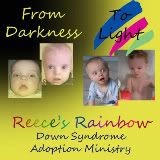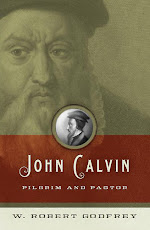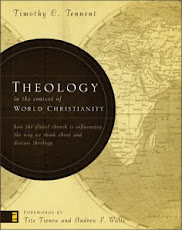Catholicism: Weighed and Measured
Kevin DeYoung has a great post entitled Is the Reformation Over?, in which he, among other things, lists some of the primary differences between Protestant and Catholic theology. I am reproducing the majority of that post, because I think it is an excellent summary:
For the most part, I'll just point out the difference rather than mount a case for the Protestant understanding of things. The questions I get as a pastor in a Reformed church are not usually along the lines of "Why is Catholicism wrong?" but "How is it different?"
The Church
Since Vatican II, the Catholic church has softened its stance toward Protestants, calling them “estranged brothers.” Nevertheless, to be a part of the church in its fullness one must be immersed in the Roman Catholic system of sacraments, orders, and under the authority of the Pope. “Fully incorporated into the society of the Church are those who...are joined in the visible structure of the
Scripture
Catholics have a larger biblical canon. In addition to the 66 books in the Protestant Bible, Catholic Bibles include the Apocrypha, with books like Tobit, Judith, 1 and 2 Maccebees, Sirach, and Baruch. Catholic teaching also elevates Tradition more than Protestants do. Granted, many evangelicals suffer from ignoring tradition and the wisdom of the past. But Catholic theology goes beyond just respecting the past; it sacralizes it. “Both Scripture and Tradition must be accepted and honored with equal sentiments of devotion and reverence,” states the Catechism. Likewise, the Magisterium has the authority to make definitive interpretations. “The task of giving an authentic interpretation of the Word of God, whether in its written form or in the form of Tradition, has been entrusted to the living, teaching, office of the Church alone...to the bishops in communion with the successor of Peter, the Bishop of Rome.”
Lord’s Supper
Central to the Catholic faith is the Mass (their worship service). Central to the Mass is the celebration of the Eucharist. Catholics believe that bread and wine are transubstantiated into the actual, physical body and blood of Jesus Christ. The elements are offered as a sacrifice from the church and a sacrifice of Jesus Christ’s work on the cross. This is not simply a remembrance of Christ’s sacrifice, but the same atoning work: “The sacrifice of Christ and the sacrifice of the Eucharist are one single sacrifice...the sacrifice [of the Eucharist] is truly propitiatory.”
Baptism
Catholics teach that “justification is conferred in Baptism.” The waters of baptism wash away original sin and join us with Christ. Baptism is not merely a sign and seal of grace, but actually confers saving grace.
Mary
Mary is not only the Mother of Christ, but the Mother of the Church. She was conceived without original sin (the immaculate conception) and at the end of her earthly life “was taken up body and soul into heavenly glory, and exalted by the Lord as Queen over al things” (assumption). She intercedes for the church, “continues to bring us the gifts of eternal salvation,” and is “a mother to us in the order of grace.” Mary was more than just the faith-filled mother of Jesus: “The Blessed Virgin is invoked in the Church under the titles of Advocate, Helper, Benefactress, and Mediatrix.”
Purgatory
Those who die in God’s grace, but still imperfectly purified, are assured of eternal life, but must first undergo purification in purgatory. Because of the presence of this intermediate state, the Catholic church has developed the practice of prayer for the dead. “The Church also commends almsgiving, indulgences, and works of penance undertaken on behalf of the dead.” Concerning the salvation of those who do not hear the gospel, the Catholic Catechism states “Those who, through no fault of their own, do not know the Gospel of Christ or his Church, but who nevertheless seek God with a sincere heart, and, moved by grace, try in their actions to do his will as they know it through the dictates of their conscience–those too may achieve eternal salvation.”
Merit
It is not really fair to say “Catholics teach that you can earn your salvation.” That may be what many Catholics believe, but the official teaching of
Justification
Catholic teaching rejects the Protestant understanding of imputed righteousness. The question is this: is the righteousness whereby we are forgiven and made right with God a righteousness working in us or a righteousness reckoned to our account? Catholics say the former, Protestants the latter. The difference is between infused and imputed righteousness–infused righteousness is like having $100 in cold hard cash in your actual possession, imputed righteousness is like having $100 wired to your account. According to Catholic teaching, justification is more than God’s declaration of our righteousness based on Christ’s work, it is also a renewal of the inner man and reconciliation with God. Of course, these are good things too, but Catholics make them present in and through justification, rather than by faith alone. The Council of Trent, from the 16th century Catholic counter-reformation, declares: “If anyone says, that men are justified, either by the sole imputation of the justice of Christ, or by the sole remission of sins, to the exclusion of grace and charity that is poured forth in their hearts by the Holy Ghost, and is inherent in them; or even that the grace, whereby we are justified, is only the favor of God: let him be anathema.”
Can Catholics and Protestants be friends? Sure. Are they brothers and sisters in Christ? Often. Are they still divided by significant doctrinal distinctives? Absolutely.



















Post a Comment